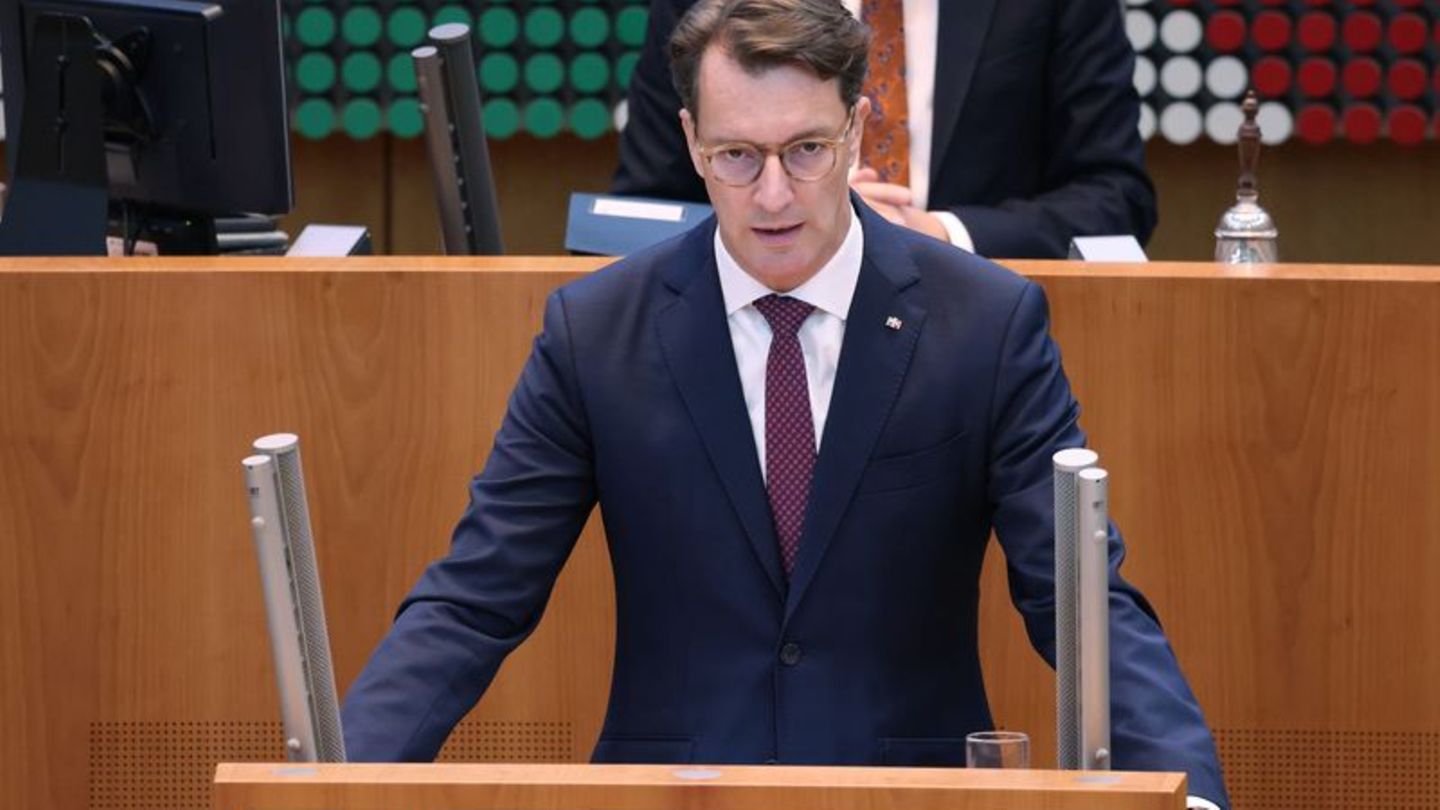The NRW government is reacting to the attack in Solingen with stricter deportation rules. What exactly are the CDU and the Greens planning in North Rhine-Westphalia?
Almost three weeks after the terrorist attack in Solingen, the black-green coalition government in North Rhine-Westphalia has agreed on a comprehensive security package. It provides for more police powers and stricter deportation rules. “We are following our words with actions,” said NRW Prime Minister Hendrik Wüst (CDU) in the state parliament. “We will expand the powers of our security authorities.”
The reform package consists of dozens of measures such as strengthening the Office for the Protection of the Constitution, increasing surveillance of potential extremists and improving data exchange between authorities, as well as measures against irregular migration.
Wüst spoke of a double turning point, because after the attack in Solingen, a right-wing extremist party had become the strongest force in a state parliament for the first time. The state cabinet had approved the security package. It is the most comprehensive security and migration package in the history of North Rhine-Westphalia, said Wüst.
NRW promises investigators more powers
Among other things, investigators are to be given more rights in the search for radical Islamists on the Internet, for which artificial intelligence is also to be used. The powers of the Office for the Protection of the Constitution in telecommunications surveillance are to be strengthened. For example, it is to be given access to encrypted messenger services.
The measures in detail:
- AI, which also understands rare languages such as Tajik, is to be used as a virtual investigator and police patrol in the digital space. Anti-democratic content on the Internet is to be tracked centrally and blocking of online services is to be accelerated.
- Facial recognition software – for example to identify threats – should be used.
- In the future, the Federal Office for the Protection of the Constitution will also be allowed to store the data of 14-year-olds.
- In addition, the fight against Islamist radicalisation of young people is to be strengthened through a series of preventive measures.
- NRW also wants to use Federal Council initiatives to promote a number of measures such as data retention.

This is how NRW wants to combat irregular migration
In North Rhine-Westphalia, a central overview of persons subject to deportation is to be introduced and the exchange of data between the authorities is to be made easier. People from safe countries of origin are to remain in reception centers indefinitely until a decision is made on their asylum application. Three additional chambers for asylum procedures are to be set up at the administrative courts.
NRW is now planning a second deportation prison. Federal Council initiatives are also intended to bring about changes to the right of residence. This includes an improvement to the so-called Dublin system and the simplified deportation of criminals, terrorists and their supporters.
On August 23, a man killed three people with a knife and injured eight others at a town festival in Solingen. The suspected perpetrator, a 26-year-old Syrian, is in custody. He was actually supposed to have been deported last year, but this failed. The terrorist group Islamic State claimed responsibility for the attack.
The deportation of the Syrian suspect to Bulgaria, which had been planned for June 2023, failed because he could not be found in his emergency accommodation. There had been no further attempts to repatriate him.”
Opposition: It is not the asylum law that has failed, but the government
SPD opposition leader Jochen Ott criticized a “government and authority failure” in the failed deportation of the Solingen attacker. “It was not the asylum law that failed in the Solingen attack, but your state government,” said Ott. Announced measures, such as the introduction of a data exchange, are an admission that the government is poorly organized in security matters.
For the FDP, parliamentary group leader Henning Höne said: “The attack in Solingen could have been prevented under the existing legal situation.” Solingen was possible due to a failure of the authorities, which was the responsibility of the state government.
Source: Stern
I have been working in the news industry for over 6 years, first as a reporter and now as an editor. I have covered politics extensively, and my work has appeared in major newspapers and online news outlets around the world. In addition to my writing, I also contribute regularly to 24 Hours World.




